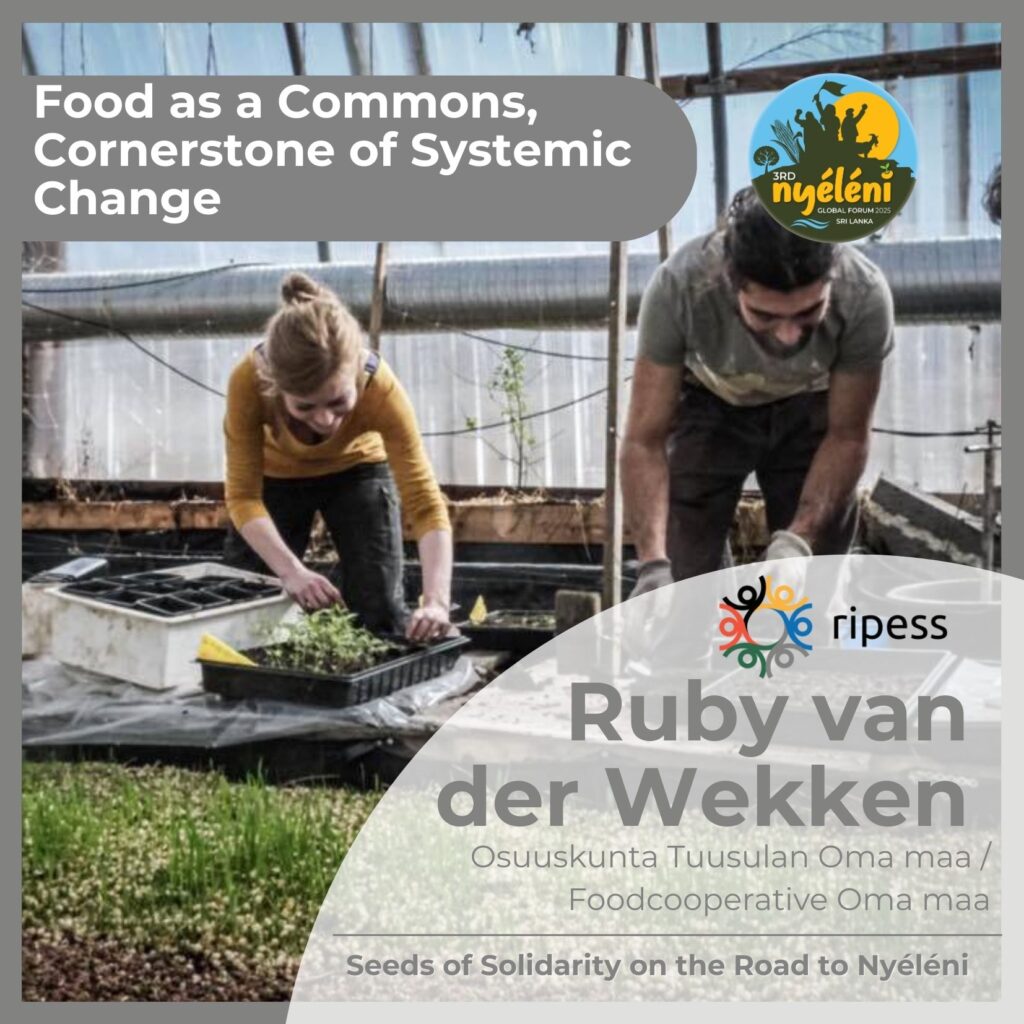
Ruby van der Wekken is part of the food cooperative Oma Maa (“Our Soil”), located in the Helsinki region of Finland. For over 16 years, this cooperative has worked toward food sovereignty through a Community Supported Agriculture (CSA) model that brings together producers and consumers in a collective effort to transform the food system.
The cooperative produces organic and vegan food bags for 50 weeks a year, including both primary and secondary products. They grow vegetables, fruits, grains, flours, and flakes, and process them into oat yogurt, hemp tofu (hefu), pea falafel, canola oil, wheat-based seitan, berry jellies, and other items made entirely from their own farm produce. Their work is not only about feeding people, but also about educating and empowering them—breaking down the divide between those who grow and those who eat.
Oma Maa operates in a region facing rural depopulation, the closure of small farms, and agricultural policies that favor large-scale, monoculture, non-organic production. Legislation also supports industrial food processing, while community-based efforts are left behind. The current right-wing government has slashed welfare policies, making it harder for people to afford healthy, local food—both financially and in terms of time.
In response, Ruby and her collective insist that Social and Solidarity Economy (SSE) initiatives like Oma Maa are not small-scale solutions, but foundational pillars for systemic change. Transforming the food system means transforming how we relate to land, community, and our basic needs. But this change must be led by people and their values—not by profit-driven markets.
The cooperative has helped establish a national CSA network in Finland and collaborates with other actors. Yet daily survival pressures and limited resources make it difficult to sustain these structures. A minimum volume of food bag orders is needed to fairly compensate producers and maintain the diversity of offerings—something that is currently not being met.
uby brings to the Nyéléni forum a clear message: the struggle for food sovereignty in the global North is deeply connected to that of the global South. Growing our own food is a matter of justice. Cooperatives like Oma Maa don’t just feed—they build hope. As farmer Jukka Lassila, a member of the cooperative, says: “First we care for the land; then we see what we eat. Food is what connects us all. And whoever controls the food system—including water—controls society.”


